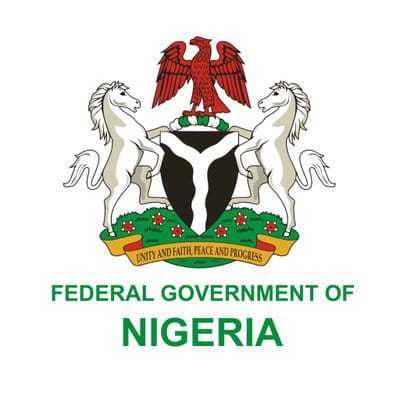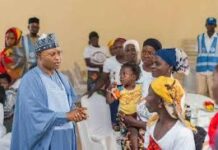Creating enabling environment critical to achieving electricity vision 30:30:30 – FG
Story from ABAH ADAH, Abuja
The federal government (FG) has stated that the creation of enabling environment is a critical component in the realisation of the Electricity Vision (EV) 30:30:30 which seeks to make available 30GW of electricity by the year 2030 with 30% of the energy mix coming from the renewable energy sources.
The Permanent Secretary (PS), Ministry of Power, Mr Temitope Fashedemi, stated this Monday in his welcome speech at the opening ceremony of the 5th edition of the National Council on Power (NACOP) which is to close on 9th December 2022 in Abuja.
He said, “Given Nigeria’s enormous energy resources, its huge human capital, and population demography, it is obvious that creating an enabling environment is a critical component in the realization of the Electricity Vision (EV) 30:30:30 which seeks to make available 30GW of electricity by the year 2030 with 30% of the energy mix coming from renewable energy sources.
“The Ministry through collaboration with Nigerian Energy Support Programme (NESP) has achieved the following: a. Mapping of over 3,937 settlements; 3,244,605 buildings and 60,183km of 11 and 33kV medium voltage line of the grid in 23 states.
“The data provides information for electrification planning, least cost of electrification, electricity access, and decision making. The data has been uploaded to the Nigeria SE4ALL website www.nigeriase4all.gov.ng ;
“b. Minimum Energy Performance (MEP), Energy Efficiency (EE) Household labels and Standards have been developed and approved for lighting, refrigerators, and Air-conditioners by the Standard Organisation of Nigeria Council (SON);
“c. Nigerian Standards for Solar Photo Voltaic (PV) panels, batteries, inverters and charge controllers are being developed and approved by Standard Organisation of Nigeria (SON);
“d. Six solar PV mini-grids developed under NESP I are providing sustainable electricity to more than 15,000 people as of 2020, and 100,000 additional people would be reached under NESP II through the Mini-grid Acceleration Scheme (MAS);
“e.The Building Energy Efficiency (BEE) Code has been developed and introduced in three states (Lagos, plateau, and Kano) in the country; and
f. The Energy Efficiency Network (EEN) in the Nigerian industries through the use of ISO 50001 has achieved 15% energy savings in their industrial process.”
He, therefore, charged participants to do a thorough job in harmonising and integrating all issues discussed into a national policy on Power that would translate into achieving Incremental, stable, and uninterrupted Power to
Nigerians
In what could be described as score card between the last council meeting and this one, the managing director and chief executive officer (MD/CEO), Transmission Company of Nigeria (TCN), Engr Sule Abdulaziz, said that TCN has addressed almost all the actions required of it from the last meeting.
And having enumerated key projects that had been executed and energised respectively around the country, he solicited the support of the state governments in the areas of encroachment of Right of Way, vandalism among others.
He said, “In this regard, TCN would like to seek the support of the following stakeholders the states in acquiring Right of Way and dealing with encumbrances on our existing right of way; in addressing vandalism and encroachment of soil around our towers”.
Follow the Neptune Prime channel on WhatsApp:
Do you have breaking news, interview request, opinion, suggestion, or want your event covered? Email us at neptuneprime2233@gmail.com





